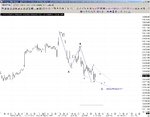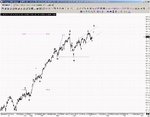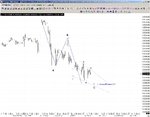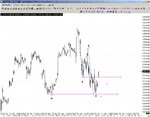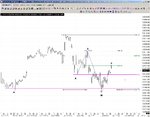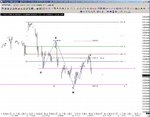Profit-Taking Negates Surprisingly Good Employment Report
Bob Carver
Sunday, January 07, 2007
Stocks tumbled on Friday despite a report from the government that 167,000 new jobs were created in December. This was a shock to the bond market, which had factored in a weakening economy based upon recent reports from Monster.com and ADP which showed job losses last month, and bond prices tumbled sharply, raising long term interest rates.
However, the reaction in the stock market was quite unexpected. Stocks tumbled on good news, something that calls into question the whole idea that news drives the markets. The financial journalists hastily went to work, flailing away at various and sundry excuses for stocks to sell off based upon this news. The first law of financial journalism is that news drives the markets, a convenient lie which supports the livelihood of journalists, obviously, but is a gross distortion of reality. In any case, they seemed to settle on the rationalization that a strong economy would forestall interest rate cuts by the Fed under the questionable assumption that the stock market's recent rally had been based upon the idea that this would be the next move by the Fed. Ignoring inconvenient facts is always a good strategy for journalists, who don't seem to realize that the prospect for future earnings is the overriding factor in determining stock prices, not interest rates, nor even their precious lifeblood, news. In fact, all of the journalists' explanations rang hollow, but that didn't stop the mantra they had settled upon. Basically, they missed the forest for the trees. Sometimes the truth is just too inconvenient to report.
The fact that almost all stock markets around the world fell -- many long before the US Employment Report was released -- apparently didn't factor into journalists' rationalizations. Many world commodity markets tumbled as well. The decline in markets last week can be attributed to one simple explanation which has nothing to do with news. That explanation is: profit-taking. Investors who had big gains in 2006 were simply selling their big winners. A look at what the major US stock indices did last week and last year shows that the largest losses occured in the big winners in 2006, a sign that this is a normal beginning of year exercise in profit-taking that has no longer term significance:
Stock Index 2006 Performance Last Week's Change
Dow Industrials +16.29% -0.29%
S&P 500 +13.62% -0.60%
NASDAQ-100 +6.76% +1.63%
Clearly, investors with large paper gains last year were anxious to cash in their chips in the biggest winners. Note that the only major index which showed a gain last week was the tech-heavy NASDAQ-100, which substantially lagged the others in 2006.
Albert Einsten once famously said, "Everything should be made as simple as possible, but no simpler." It's something that financial journalists should keep in mind if they want their product to retain whatever credibility it has left.

